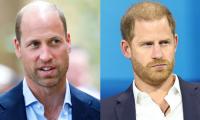pre-dates what is being touted today as “Iqbal-ian liberalism”, which is nothing short of a total political fabrication and invention.
In any case and more accurately, historically, liberalism defined social reform and focused on workers’ rights, women’s rights, universal education and public health and was only shattered by world wars 1 and 2. The post-war years introduced a new anti-liberal, anti-communist sentiment, and nationalism, imperial adventurism and propaganda that thrived on fear-mongering. Marxists point out, often bitterly, that by the time of the Cold War, the weaker brands of liberalism shifted and embraced unfettered capitalism, globalisation and essentially betrayed the core of liberal thinking by embracing neo-liberal economics. This ushered in a more diluted and benign new liberalism.
Therefore the new liberalism that we now all wish to claim so proudly is already one that carries a diluted agenda and therefore offers no radical change. It corners the new liberal to uphold the belief in democratic liberalism and the ‘rule of law’ in the naïve hope that these will level the field despite knowing well that unless economic structures are radically challenged and changed, there can be no liberalism.
The worst offenders of false liberalism are to be found in those political parties that claim to be ‘liberal’. The haemorrhaging liberalism of the ruling party of the PPP, which has been unwilling to defend the lives of its own liberal party members, is matched only by the violent, middle class warfare exhibited by its ‘liberal, secular’ allies in Karachi. One doesn’t become a liberal by virtue of political contention against the clergy and landholders alone – liberals don’t arm themselves to the teeth and neither are murder, torture and extortion the foundational principles of liberalism or secularism.
Our media has been hijacked by the most illogical bias of the conservative journalist, who routinely condemns anyone who expresses free thought, as a ‘liberal fascist’ – an absurd oxymoron. It’s like saying ‘progressive conservative’ – they don’t fit. The worst of the journalists are usually those who mask themselves as objective, ‘liberal’ commentators. If you scratch the clean-shaven pretender’s mask, his misogyny and illiberal instinct rears its attack by way of mocking women politicians, anti-US and India stance and condemning the immorality (not inefficiency) of political leadership (never the military leadership).
While it is easier to expose the ‘hijacking’ of the liberal agenda, perhaps what has indicted the liberal class the most has been its inability to examine critically its own failures. Most liberals tend to be morally injured if their retreat into atrophied institutions, such as NGOs and other boutique activism, is critically analysed.
The Left, which used to denounce the market, seeks now to find humanity within it. Whereas it used to dismiss mass culture as exploitative, it now hails it as rebellious and seeks its five minutes of coverage in the cacophony of the airwaves or is self-congratulatory in the virtual media and through cyber activism.
The liberals used to honour independent intellectuals as courageous but now they shy from critical thinkers, while they churn out their benign, repetitive and duplicated ‘development work’. They accuse academics and conceptualisers of being ‘armchair elitists’. Yet they refuse to reflect on the fact that much of the criticism that was raised at the beginning of this government’s term, if heeded, could have prevented some of its disastrous social and economic policies.
Such uncritical attitudes have led to a silencing of the liberal voice and ceding of its agenda. Precisely because liberalism has become so watered-down and close to the centre, therefore the co-option of the label, by the half-baked conservatives, has been inevitable.
The consequences of hiding behind the virtues of liberalism as a tolerant, compromising, balancing act, that is loath to take radical action, is taking fruition. Modern liberalism in Pakistan is being usurped as it retreats from its earlier commitment to meaningful change and now merely holds onto its old world, wishy-washy, unfulfilled, nostalgic utopian ideas. That’s why the grand false promises by new liberal leaders appeals to a new youth who are equally driven by inane and banal amalgamations such as faith-based science, sufi-capitalism, lap-top activism and Muslim-universalism.
If, however, political aspirants are genuine about forging an authentic liberal agenda, then they need an alternative economic agenda that is not defined by neo-liberalism; a social agenda that focuses on universal and indivisible human rights regardless of religion or gender; a legal agenda that does not object to qisas and diyat laws just for Raymond Davis but sees the injustice in the barter of justice for all, equally; and a political agenda that understands its own philosophy so that internal decision-making, as well as principles of rationality and self-scepticism, rather than faith and patriotism, are its guidelines.
The writer is an independent researcher. Email: afiyaszia@yahoo.com
It is clear that radical policy shift is essential if Pakistan seeks to make meaningful difference in its future outlook
Turkiye has realised reform that has attracted over $100 billion of investments into its electricity markets
Bill emphasises transparency through legally binding online Mining Cadastre System
Women-led carbon projects could be the triple wins – for climate, communities and credit buyers
Challenge for writers, readers, and activists today is to break down barriers that divide literature from people it is...
US must ditch tariff fetish, rally its allies and sit down with China to salvage trade before floor caves in







